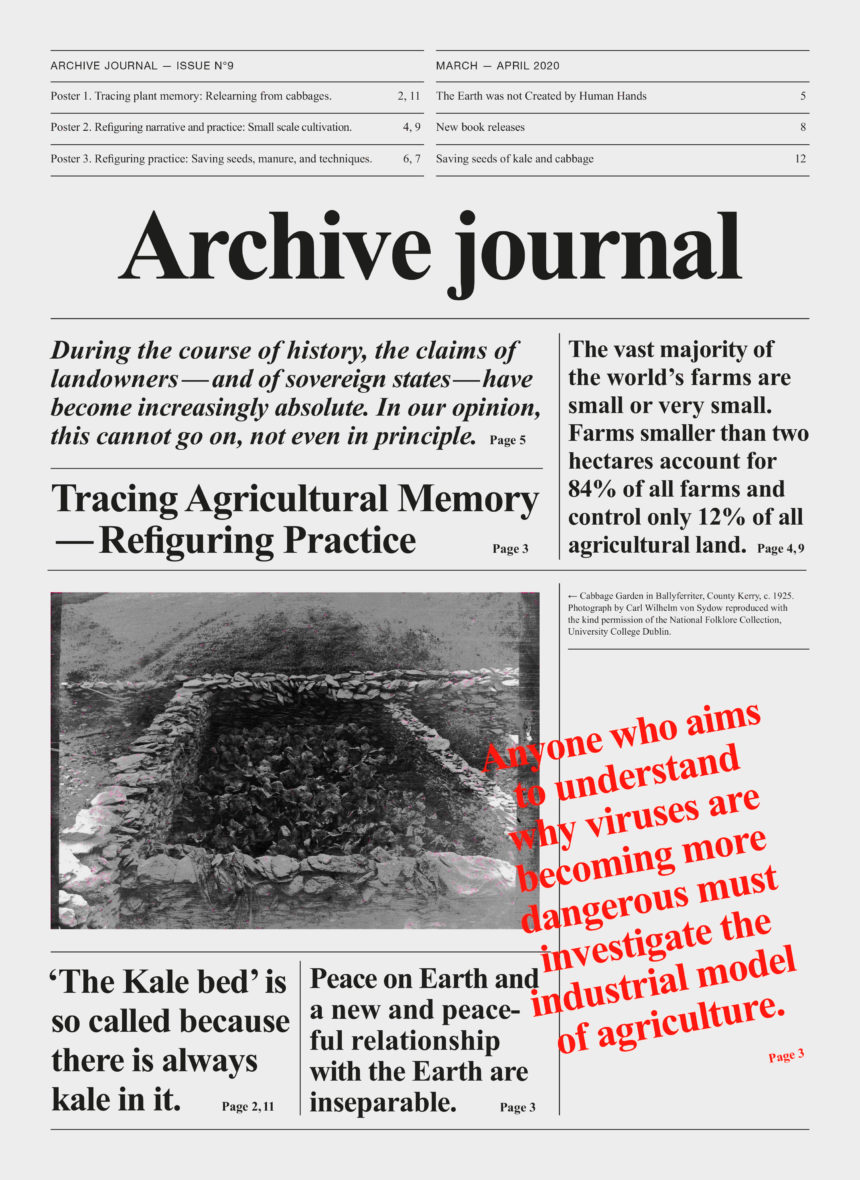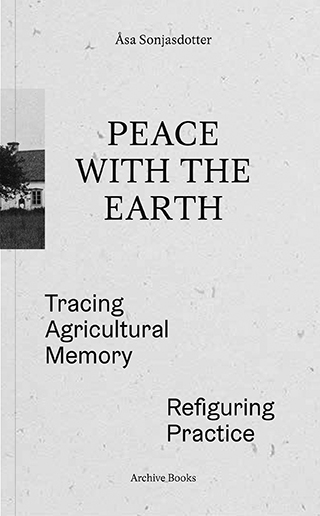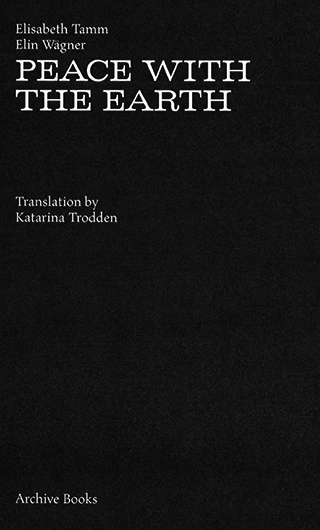The emergence of Covid-19 is not an isolated incident. Exploitive land use, large-scale animal production and monoculture farming causes great disturbances in the web of organic life, where the increased risk for epidemics is only one of several severe effects. Industrial food production and further multinational, corporative, and extractive activities in habitats is directly linked to outbreaks of dangerous diseases, of which the covid-19 is one of several examples. The epidemic viruses transmit from wildlife as natural habitats decline, as well as they emerge from large-scale animal production.
The distribution of this journal, together with the distribution of kale varieties that are farm-bred and thus have maintained their genetic diversity and capacity to adapt to shifted habitat conditions, will however take place as planned and organised by PAC and Gareth Kennedy, artist and Lecturer at NCAD Sculpture and Expanded practice within the ‘Seed Exchange’ programme. Seeds of the kales presented on page 12 in this journal can be ordered over the Irish Seed Savers’ website. A seed sharing session with talks by Joanne Newton, seed curator at the Irish Seed Savers, and R. E. Murphy, plant scientist and expert in Irish cabbage varieties, is as well postponed to a later date, which will be announced over the PAC website.
For more information on viruses and agrobusiness, and from which the citation in red on the front page of this issue is borrowed: Rob Wallace. Big Farms Make Big Flu: Dispatches on influenza, Agribusiness, and the Nature of Science. NUY Press, 2016.


